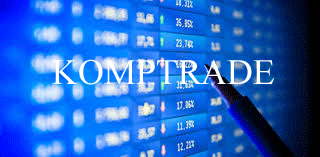Some investors say that recent market swings herald a general decline in stocks: the recent stock market rally on 14/10/2022 is just a "swan song" before a massive sell-off in stocks. When the breakout occurs.

The most volatile assets, economic tensions and dysfunction in the UK are raising red flags. Fears that markets are close to breaking down are gaining ground on Wall Street and among influential investors and experts.
Signs of stress in the system are accumulating: jagged asset movements, economic instability, the reluctance of banks such as Deutsche Bank and Credit Suisse, and the crisis in the UK has shown that government bonds and pensions are no longer safe havens.
"Volatile assets, economic difficulties and signs of distress at major banks are fuelling fears of market collapse and disruption to the global financial system.
Market strategists point to the Federal Reserve as a key driver of the current chaos. The US central bank raised interest rates from near zero in March to a range of 3% to 3.25% in an effort to calm historic inflation".
A stock market crash can also be an opportunity, so it's time to get advice.
However, the rate hikes have driven down equities, pushed up bond yields and pushed up the US dollar. The risk of a global economic slowdown has in turn increased, experts say.
Many strategists question the Federal Reserve's strategy of fighting inflation by dramatically and rapidly raising interest rates. This has pushed bond yields and the dollar to 20-year highs, causing economic stresses that are spilling over into the markets.
There are also signs of distress in the financial services sector with credit default swaps from monetary central banks doubling and even tripling in Europe. Tensions in the financial system have begun to show, first with the LDI crisis in the UK.
There is already a lack of liquidity in many markets. Some experts believe that the first signs will be seen in the financial markets and ETFs.
One of the indicators will be the decline in equity trading volumes in emerging markets where there is a substantial amount of dollar denominated debt, there is already a debt crisis there caused by the restrictive monetary policy in the US which is having a huge impact on the rest of the world, especially on emerging markets.
